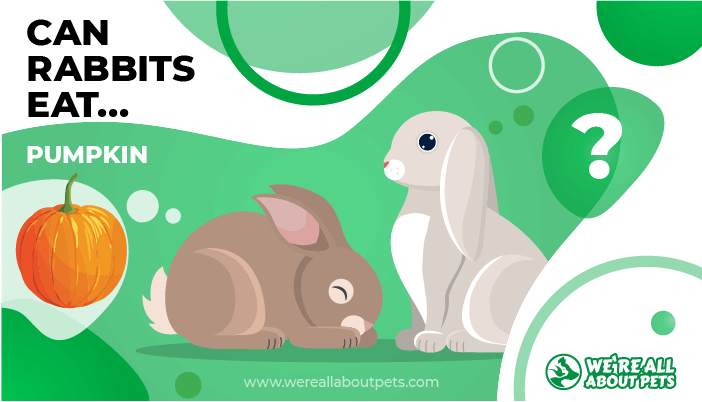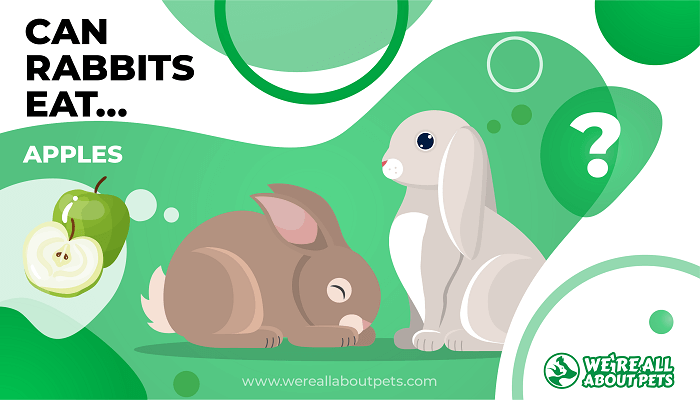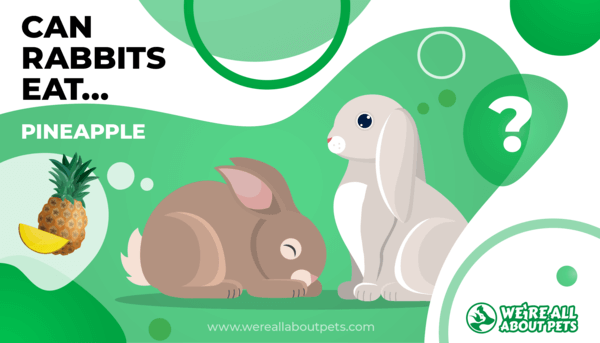The 5 Best Leafy Greens For Rabbits
This page contains affiliate links. We may earn money or products from the companies mentioned in this post through our independently chosen links, which earn us a commission. Learn More
Rabbits can be wonderful pets and can make great companions. They’re not very hard for you to bond with, they don’t need a lot of space and are generally very clean. However, their diets can sometimes be a little complicated.
You may think that all you have to do is give your rabbits a carrot once in a while and they’ll be fine, but that is far from true. To keep your rabbits healthy, it’s imperative that you monitor what they eat, which is something that you need to pay attention to on a daily basis.
All animals have their own, specific nutritional needs, and rabbits are no different. A bad diet for bunnies can lead to weight problems and digestive issues, as well as lowering their general happiness and quality of life.
The majority of a rabbit’s diet should be hay, and you can also give them carefully measured portions of commercial pellets for additional nutrients. But, providing them with helpings of fresh, leafy greens will give them lots of additional nutrients.
It’s important to keep in mind that only about 10% of your rabbit’s diet should be leafy greens, but fresh greens can still be a very important part of what your rabbits eat, and can help contribute to their happiness, health and longevity.
At a Glance: The 5 Best Leafy Greens for Rabbits
1. Red and Green Leaf Lettuce
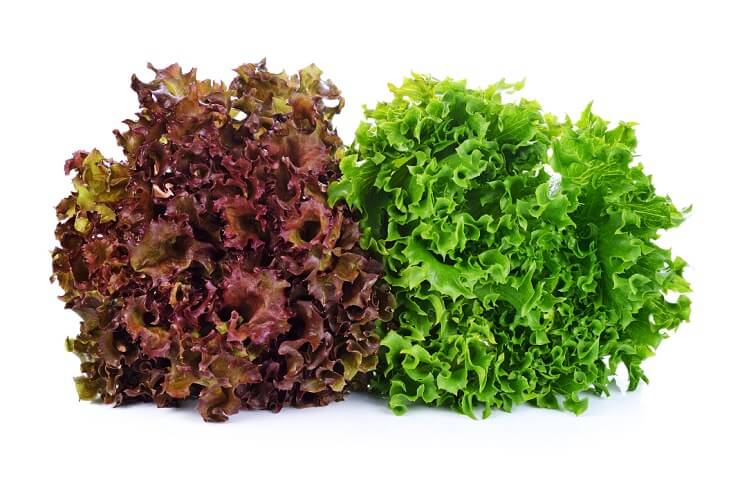
Low in sugar, carbs and calories, but also high in fiber. Contains lots of vitamin A, vitamin K and other essential nutrients.
2. Romaine Lettuce
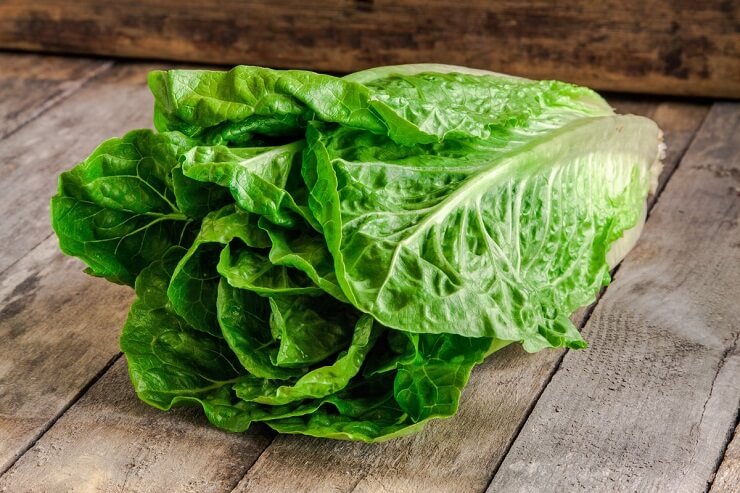
A good source of fiber, as well as being a source of vitamin C and vitamin K. It’s also free of toxins and low in calories.
3. Spring Mix
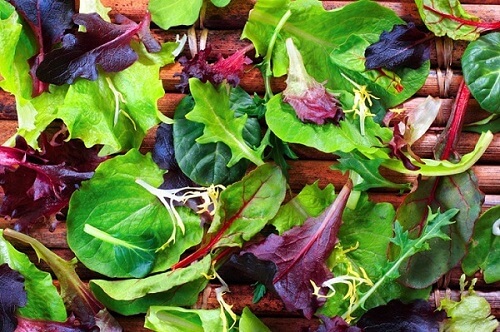
It’s full of fiber and low in sugar, as well and being a good source of vitamin K. Plus, it has a very high content of antioxidants.
4. Arugula
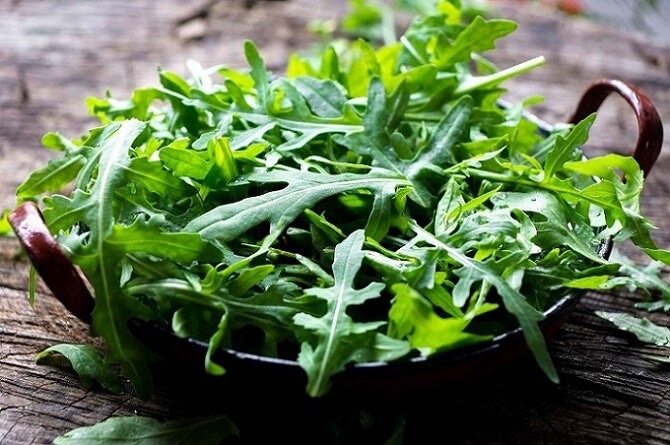
Contains fiber and protein, along with calcium and vitamin C. It’s also low in calories and full of minerals.
5. Bok Choy
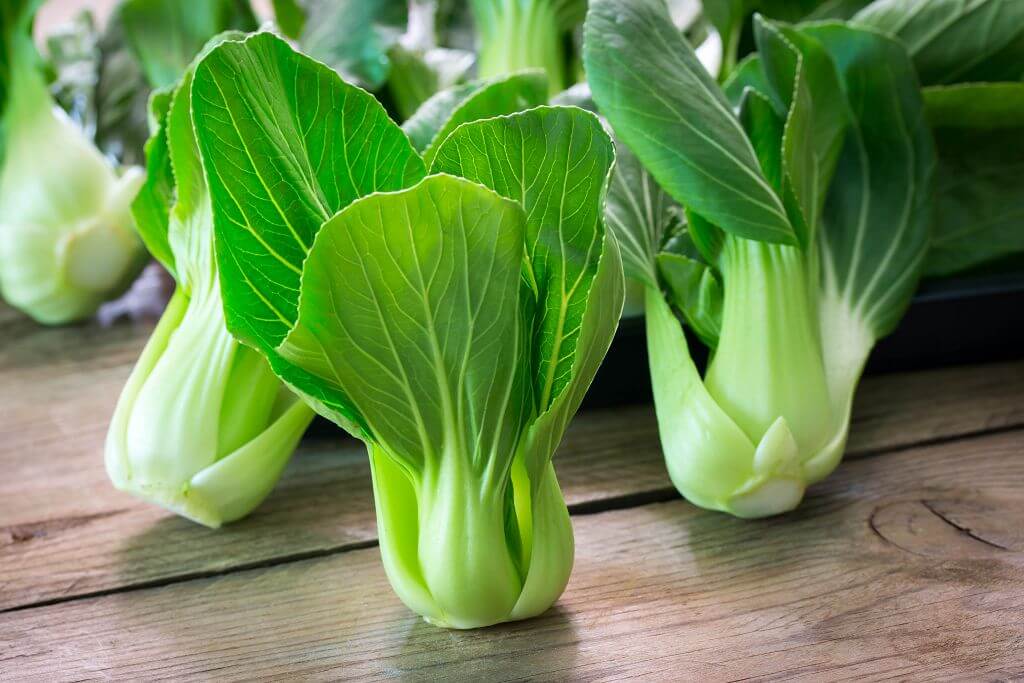
It has a high amount of antioxidants and is low in calories. It’s also a good source of vitamin A, vitamin C and vitamin K.
Things To Keep In Mind When Feeding Your Rabbit Leafy Greens
As mentioned, the majority of a rabbit’s diet should be hay, and hay should be approximately 80% of what they eat. Hay contains a lot of fiber which is good for bunnies’ digestive systems, it helps to keep your rabbit’s teeth well groomed, and it also promotes their natural foraging and chewing behaviors.
As also mentioned, commercial pellets can be another good source of added nutrients, and pellets can also help with their dental health, but they should only make up about 10% of their diet.
As for leafy greens, that’s the last 10% of their recommended diet. Rabbits should get one or two helpings of fresh, leafy greens daily, depending on their weight. The general rule of thumbs is that rabbits should be fed 1 cup of greens for 2 pounds of body weight.
Why Are Greens So Important?
In addition to the added nutrients, leafy greens contain antioxidants and additional moisture, which is good for a rabbit’s kidney and bladder. So it’s important to look for greens that have the right balance of dietary needs to support your rabbit’s long-term health.
Fresh greens also contain phytonutrients, which are only found in plants, and are good immune-system boosters. Also, organic produce is preferred to avoid any pesticides and GMOs.
What To Look For In Leafy Greens?
The best leafy greens are ones that contain a good amount of fiber, vitamins, added minerals and antioxidants. They should also be lower in sugars, carbohydrates and calcium.
Red and green leaf lettuce, Romaine lettuce, Arugula, Spring Mix and Bok Choy are good options. Make sure that they are fresh and washed before feeding.
What To Avoid With Leafy Greens?
Most leafy greens might look healthy but can sometimes be detrimental to your rabbit’s health or provide no nutritional value. Also, certain leafy greens contain oxilic acids, which can be harmful and toxic to bunnies if fed in larger quantities.
Iceberg lettuce should be avoided, and other veggies like kale, spinach, mustard greens and Swiss chard should only be fed in limited amounts to avoid digestive issues.
Extra Leafy Greens As Treats
Other green veggies that rabbits love are parsley, cilantro, collared greens, mint, carrot tops, butter lettuce and dandelion greens. But, it’s a good idea to remove the stems to avoid gassiness and soft stools.
Final Thoughts
A rabbit’s diet may seem complicated, but once you get the hang of it, it’s not very difficult to figure it out. Leafy greens can provide your bunny with extra vitamins, fiber and antioxidants, and they can also contribute to your rabbit’s longevity and general well-being.
Rabbits like a little variety in their diet, and giving them carefully measured portions of leafy greens make it easy for you to accomplish this if you have an ample supply on hand. Rotating their leafy green intake should be done gradually to avoid any digestive issues. But, if you have an ample supply of fresh greens available, it’s easy to switch things up every day or two to avoid any digestive issues.
Finally, it’s recommended that your rabbit’s leafy greens are organic to avoid pesticides, and GMOs. And, be sure to check the labels on the leafy greens that you buy to see whether or not they have been pre-washed. Even if they are pre-packaged, they may need to be rinsed thoroughly before feeding.
All rabbits have their own unique nutritional needs, so you may need to do some experimenting to find out what your rabbits enjoy and what works best them. Still, in the long run, giving your rabbits fresh leafy greens will definitely improve and lengthen their lives, as well as making them happy.

